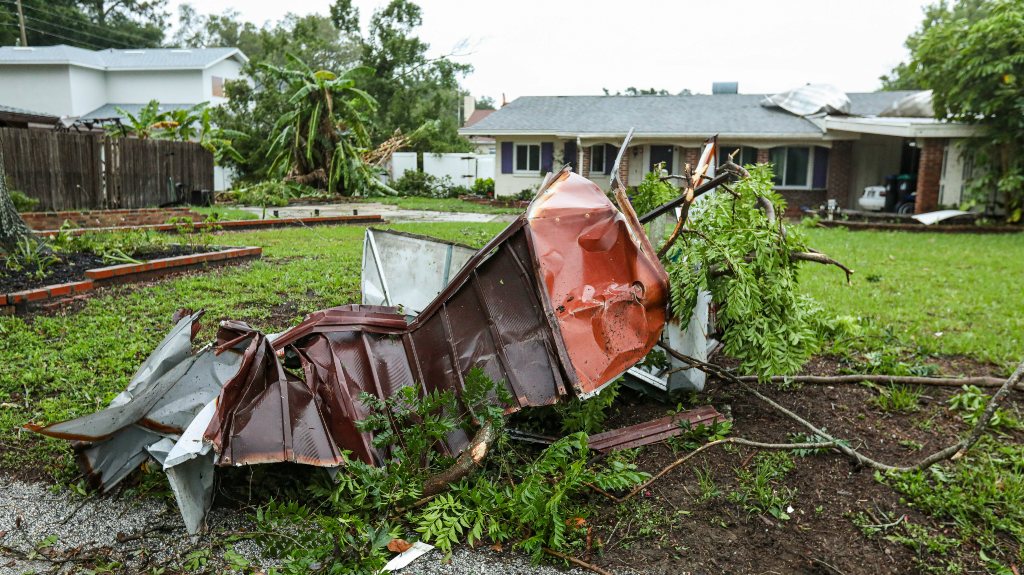What to Do After Hurricane Damage to Your Florida Property

Hurricanes can cause catastrophic damage to properties in Florida, leaving homeowners overwhelmed. In the aftermath, knowing the right legal steps is crucial for ensuring you receive the compensation you deserve. This comprehensive guide from Parrish Law will help you understand the legal processes involved after experiencing hurricane damage.
Assessing the Damage
Before you inspect your property, ensure it’s safe to do so. Check for hazards such as downed power lines, broken glass, and unstable structures. If the damage is extensive, it might be best to wait for emergency services to declare the area safe. Once it’s safe to enter, document all damage thoroughly. Take clear, detailed photographs and videos of the exterior and interior damage. This evidence will be crucial for your insurance claim and potential legal action.
Make a list of all damaged items, including their approximate value.
Notify Your Insurance Company
Contact your insurance company as soon as possible to report the damage. Most policies require prompt notification to ensure coverage. Provide them with the documentation gathered and follow their instructions for filing a claim. Review your homeowner’s insurance policy to understand what is covered. Many policies cover wind damage but may have separate deductibles for hurricane-related claims. Familiarize yourself with the terms and conditions to avoid surprises during the claims process.
Mitigate Further Damage
To prevent further damage, make temporary repairs (such as covering broken windows with plywood or tarping a damaged roof). Keep receipts for materials and labor, your insurance company may reimburse these expenses. Avoid making permanent repairs until an insurance adjuster has assessed the damage. Ensure that your property is secure. This might include boarding the windows, securing doors, and removing hazardous debris. Securing your property will help prevent additional damage and protect against potential theft or vandalism.
Filing an Insurance Claim
When filing your claim, provide detailed documentation to support your case. This includes photos, videos, lists of damaged items, receipts for temporary repairs, and any communication with contractors. An insurance adjuster will visit your property to assess the damage. Accompany the adjuster during the inspection to point out all damages and provide your documentation, ensuring that everything is noted in the assessment.
Why Choose Parrish Law for Hurricane Insurance Claim Assistance?
If you encounter issues with your insurance claim, such as delays, underpayment, or wrongful denial, it might be time to seek legal assistance. At Parrish Law, we specialize in helping homeowners navigate the complex insurance claim process and fight for the compensation they deserve.
Our experienced legal team will review your insurance policy and explain your rights and coverage, gather additional evidence to support your claim, negotiate with the insurance company, and represent you in court, if necessary. We will strive to help you receive fair compensation for your losses.
Common legal issues after hurricane damage include underpaid, delayed, and denied claims.
At Parrish Law, we are committed to holding insurance companies accountable and ensuring that your interests are protected every step of the way.
Hiring a Contractor
Be cautious when selecting a contractor to repair your property. After a hurricane, scam artists and unlicensed contractors often prey on desperate homeowners. Verify the contractor’s credentials, check reviews, and ask for references. It’s also wise to get multiple estimates before making a decision. Always get a written contract that details the scope of work, materials to be used, timeline, and cost. A clear contract protects you from misunderstandings and ensures that both parties are on the same page.
Explore Financial Assistance
In the wake of a hurricane, federal and state governments often provide financial assistance to affected homeowners. Programs like FEMA (Federal Emergency Management Agency) offer grants for temporary housing, home repairs, and other disaster-related expenses. Check the FEMA website for eligibility requirements and application procedures. Many local organizations and charities also assist after hurricanes. These can include shelters, food banks, and volunteer groups that help with cleanup and repairs. Reach out to your local community resources for additional support.
Take Preventative Measures
While recovering from hurricane damage, consider implementing preventative measures to minimize future risks. Upgrades like impact-resistant windows, reinforced garage doors, and permanent storm shutters can significantly reduce damage in future storms. Stay informed about the latest building codes and hurricane protection requirements in Florida. Regular maintenance and upgrades can protect your property and ensure compliance with local regulations.
Contact Parrish Law for a Free Consultation
Recovering from hurricane damage can be challenging and stressful, but with the right legal support, you can restore your property and achieve fair compensation. At Parrish Law, we are dedicated to helping protect your rights and property when dealing with your insurance company. Contact us today for a free consultation and let us help you navigate the complexities of your insurance claim. Your recovery is our priority.